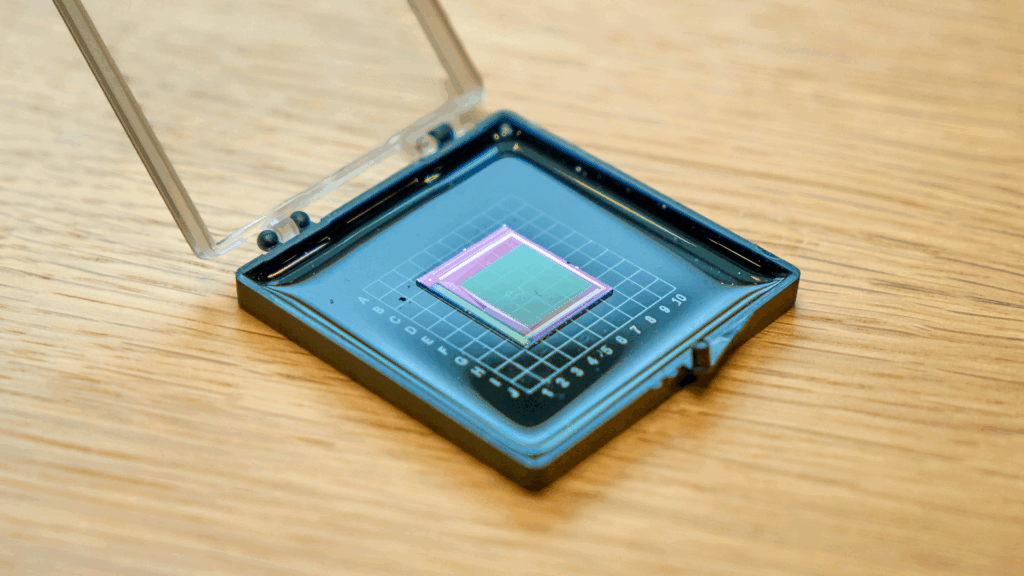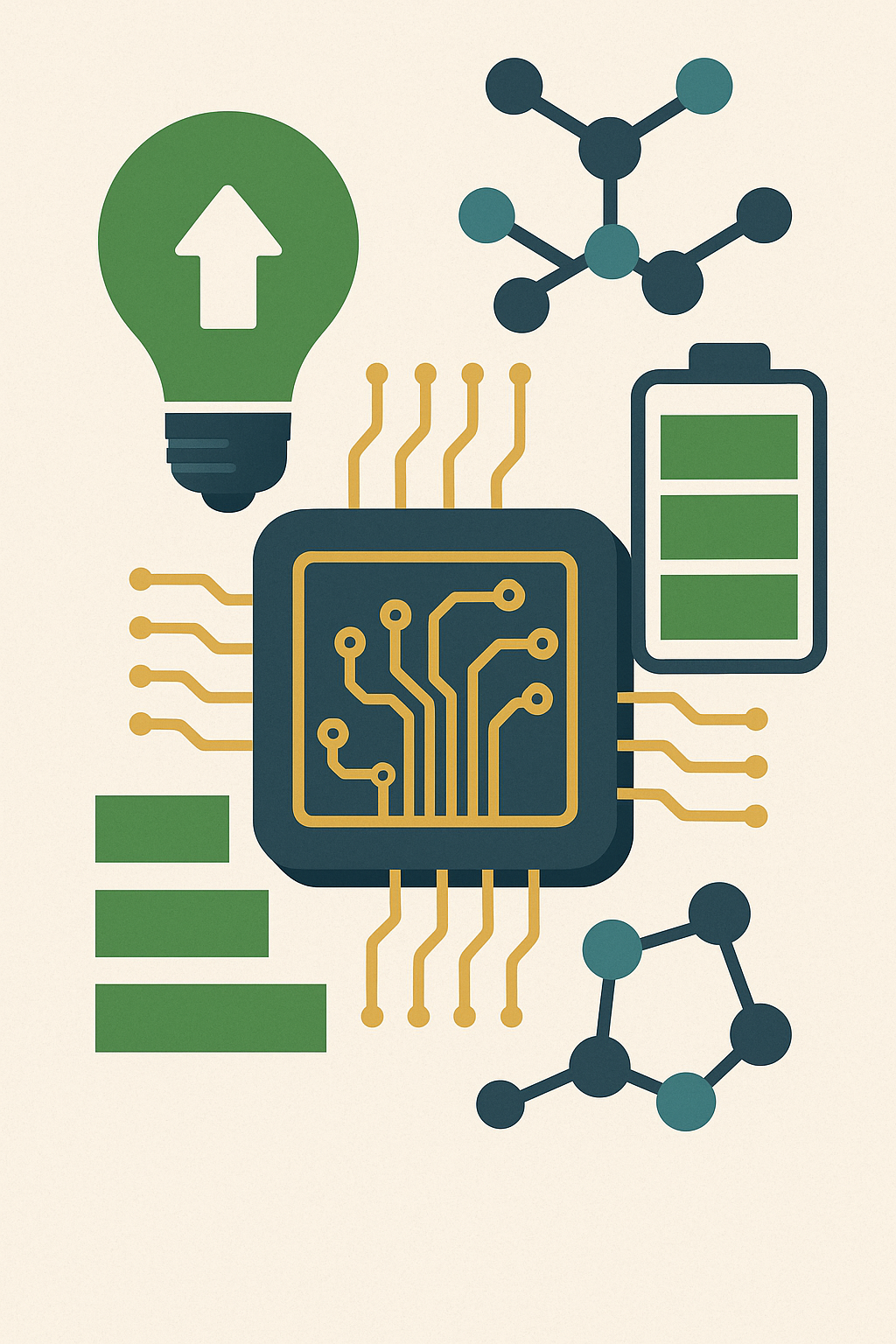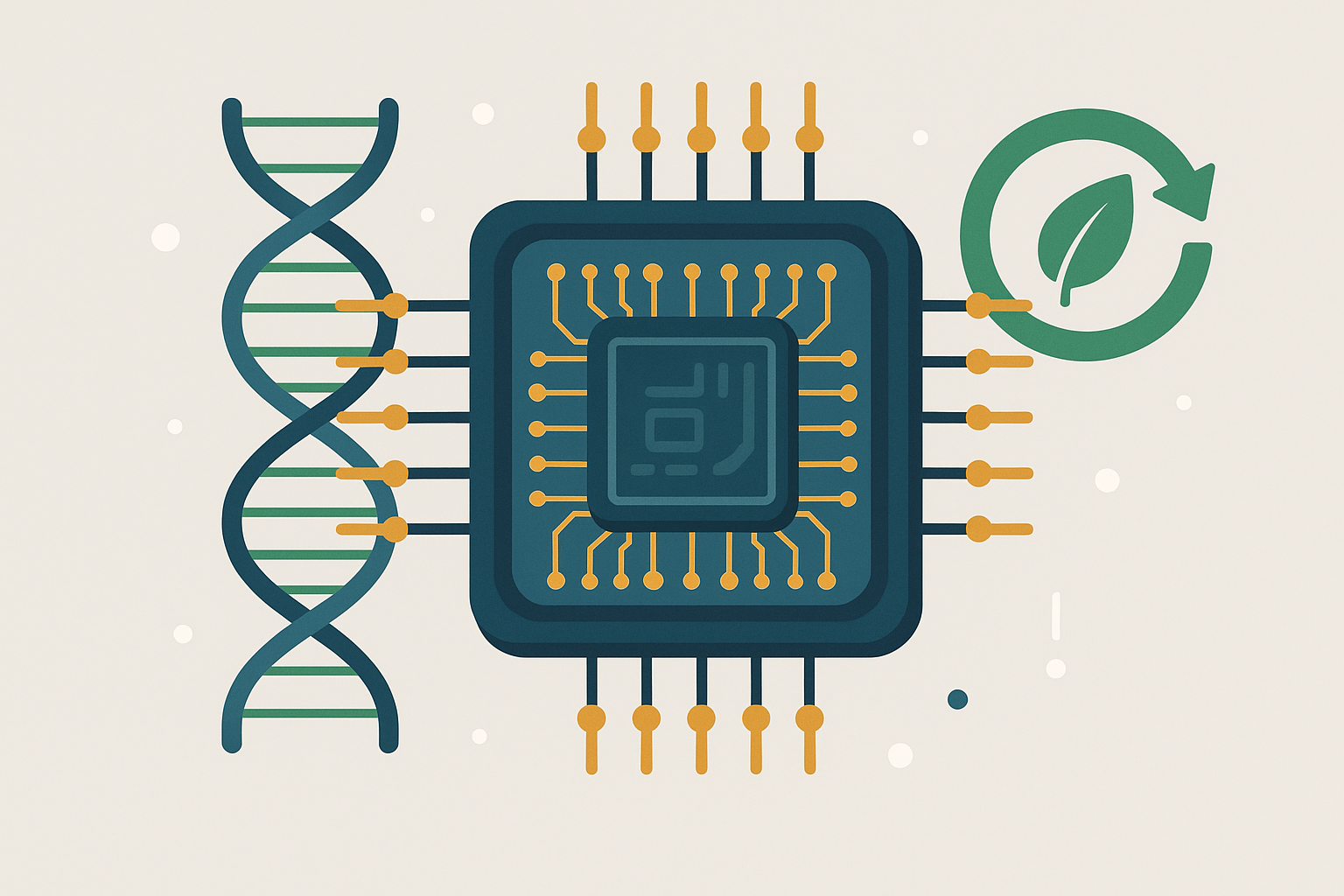Data centers power the digital world, but they consume massive amounts of electricity. Globally, data centers use about 460 terawatt-hours yearly — enough to power 153 million homes. Their emissions could hit 3.2% of global carbon output by 2025. Slovenian researcher Teja Potočnik is developing nanotechnology solutions to help reduce this energy use by improving microchip efficiency.
What’s Happening & Why This Matters

At just 26 years old, Teja Potočnik is making waves with an invention that optimizes the production of energy-efficient microchips. Her automated nanomaterial integration platform, called LithoTag, embeds nanoscale markers into semiconductor wafers. This allows precise alignment of nanomaterials like graphene and carbon nanotubes during chip manufacturing, improving performance and energy savings.
Potočnik explains, “The problem we solve is the rising demand for faster, more efficient microchips driven by AI, quantum computing, and data storage. Our technology helps make chips that use less energy by integrating nanomaterials reliably at scale.”
Her breakthrough earned her a spot among the innovators recognized at the 2025 Young Inventors Prize by the European Patent Office.
Nanomaterials like graphene have enormous potential but remain difficult to integrate consistently in industrial processes. LithoTag bridges this gap by ensuring repeatability and manufacturability—two factors critical for industry adoption.

“No matter how good a technology is, it has little value if it can’t be scaled,” Potočnik says. Her platform answers the industry’s call for scalable, reliable methods to include advanced materials in microchips.
Originally from Slovenia, Potočnik moved to the UK to study materials science and nanofabrication at the University of Cambridge. There, she co-founded the startup Nanomation, working with Cambridge Enterprise to patent her technology and form partnerships with chipmakers.
Her innovation aligns with the United Nations Sustainable Development Goal 9, which focuses on industry, innovation, and infrastructure. Energy-efficient chips can cut the carbon footprint of consumer electronics and data centers worldwide, amplifying environmental benefits.
Looking ahead, Potočnik hopes LithoTag becomes an industry standard, adaptable to any material or electronic design. She encourages other inventors to pursue scalable ideas boldly. “Have an open mind and be brave,” she says.
TF Summary: What’s Next
Teja Potočnik’s nanotech platform addresses one of the biggest challenges in microprocessor manufacturing — scaling advanced materials integration. By enabling energy-efficient chip production, her work promises substantial reductions in data center energy use and emissions.
As her startup Nanomation expands partnerships and patents, this technology may become a cornerstone in sustainable electronics manufacturing globally.
— Text-to-Speech (TTS) provided by gspeech


